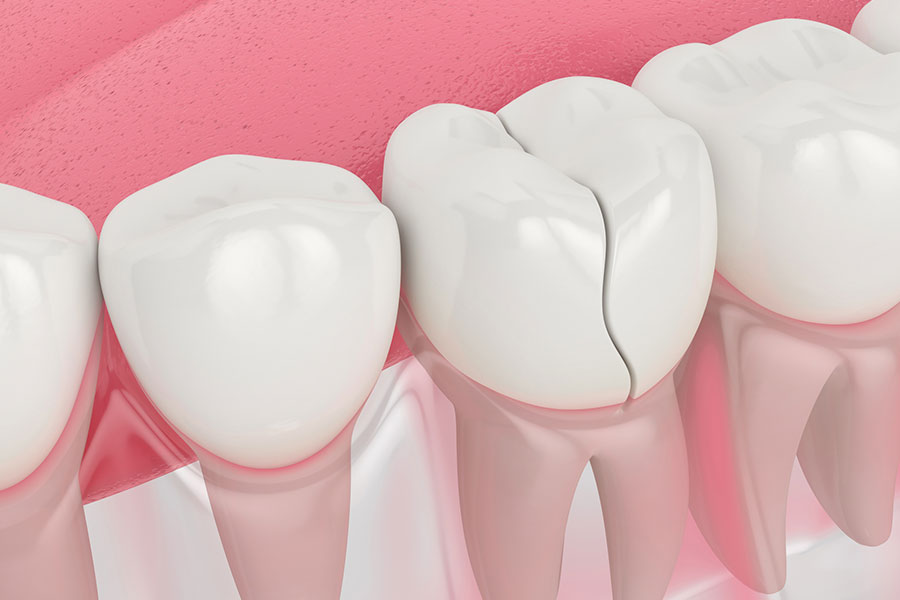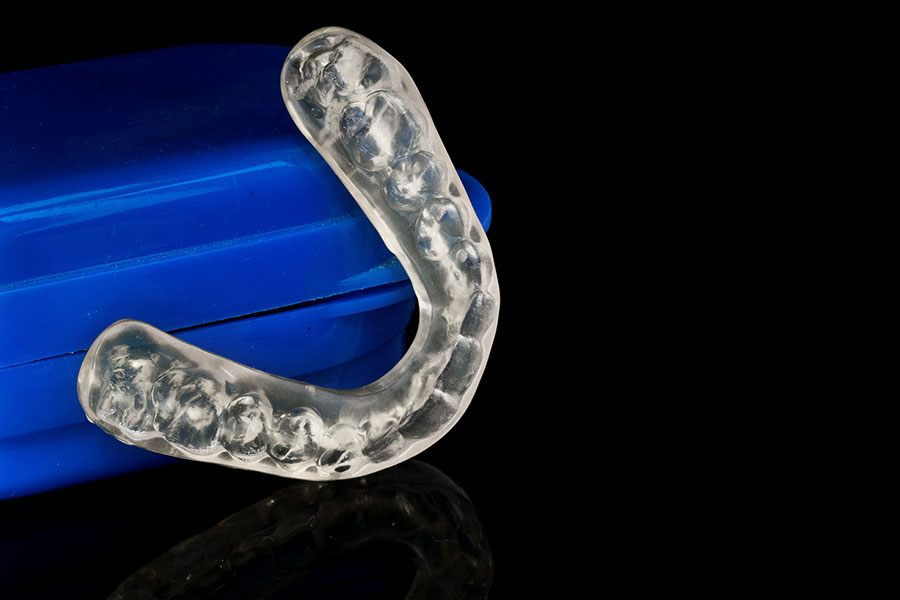Condition on the rise during pandemic
There has been much gnashing of teeth over the pandemic. The metaphorical kind is bad enough, but the literal tooth-on-tooth pressure being exerted by a rising number of people is potentially more damaging. Teeth, after all, need to last us a lifetime.
“COVID has caused an increase in grinding,” says Lorrie Chamberlin, Dental Assisting Technology instructor. “A lot of that is the anxiety [and] isolation that people are dealing with.”
Bruxism, as dental professionals refer to unconscious grinding, can also be brought on by medications such as antidepressants, adds Sherri Brown, who’s also an instructor in the dental assisting program. Alcohol and caffeine, and even sleep apnea, can also be culprits.
“Lots of times, patients aren’t even aware that they’re doing it,” says Brown. “But we see the damage that’s happening in their mouths.”
What can you do to preserve your pearly whites? Here, Chamberlin and Brown get to the root of the matter.
Obvious signs that you’re grinding

If you live with other people, one indication that you’re clenching and grinding is their alarmed reactions to the terrible sounds coming from your mouth at night, says Chamberlin.
Chances are good, however, that you’ll know without anyone’s help, owing to the effects you’ll feel the next morning, says Brown. These include a sore and tired jaw, not being able to open your mouth wide as usual, and headaches.
Bad things that can happen

“I know people who grind so much their teeth are completely flat,” says Brown. Your cuspids – the teeth flanking the front four, top and bottom – can lose the point of their existence, going from the sharpest teeth in the mouth to just another chomper. “It’s very common.”
As a teeth grinder and even daytime clencher, Brown knows the negative outcomes better than she’d like. “I’ve broken teeth. I’ve put so much pressure on my molars that I’ve needed a root canal.” For other people, she adds, fillings can become dislodged or crowns may be needed to cap damaged teeth.
“I know people who grind so much their teeth are completely flat.”
At the very least, expect the tough enamel exterior of your teeth to wear, exposing inner parts that are sensitive to hot and cold.
“You’re losing the structure of the tooth,” says Brown.
What you can do about grinding

You’re not likely to prevent grinding without medical intervention. Some dentists send patients to sleep clinics if the condition is related to sleep apnea, says Brown. Also, when she receives Botox treatment for migraines, she sometimes gets injections in her jaw to relax the muscle and decrease the likelihood of involuntary activity. “I find that really makes a difference for me.”
For most people, however, “wearing a night guard is probably the first go-to,” she says.
A night guard, or splint, looks similar to what an athlete might wear during contact sports, but more discrete. There are two ways to go with them.
One is an off-the-shelf guard from a drugstore. (Chamberlin says the Oral-B model, for one, is well reviewed.) They’re inexpensive and effective, and a good way to get used to wearing a better one. Usually, the store-bought variety tends to be a warm up for one made by a dentist.
“A custom guard is going to be built for your mouth,” says Chamberlin. “It’s going to be the most comfortable. It’s going to be the most durable.”
Ultimately, it might also be a good investment, even at roughly $600. “It’s well worth it in the long run to pay for that splint now,” says Brown. Not only will it help preserve your teeth beyond the pandemic, it’ll take a bite out of future bills.
“It’s going to save you pain and suffering, and higher dental costs because of broken fillings, crowns, and more.”
What to do about kids who grind their teeth
It’s awful to walk down the hall at night and hear kids grinding their teeth like little nutcrackers, says Dental Assisting Technology instructor Sherri Brown. That said, it’s not likely something to worry about.
If they’re particularly young, they’re working away at baby teeth. In any case, chances are good that they will simply outgrow the habit (even if they eventually pick it up again in adulthood).
In her 15 years in practice, “I’ve never seen a child be treated for it,” says Brown.
Banner image Chainarong Prasertthai/istockphoto.com